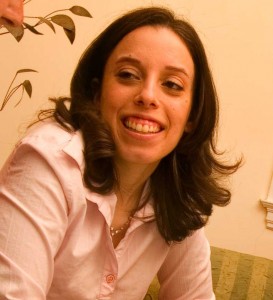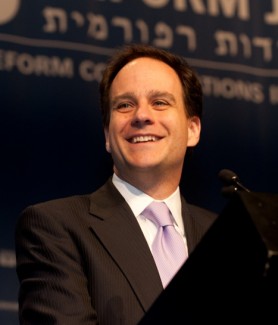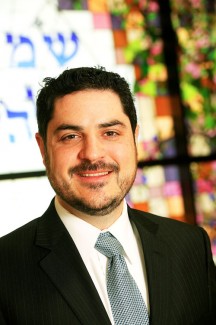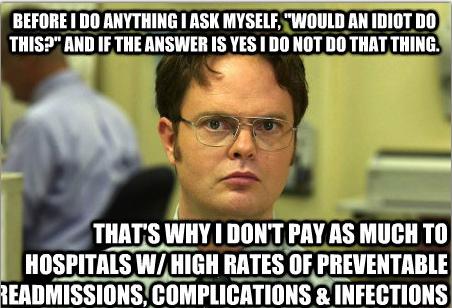JOIN for Justice Organizing Fellow Ari Fertig has done it again! Fertig, of the famed tumblr 99 Percent Have 99 Problems has meme-ified the world of health-care policy. Fertig’s new project, Payment Reform Made Meme, aims to make payment reform more accessible and interesting through images of popular stars and characters talking about complex issues. Fertig’s creation has hit the internet by storm, catching the eye of the Washington Post. Check out the Post’s feature!
Making Payment Reform a Little More Accessible
The Secret of Moishe House Boston’s Success, and Why You Should Come to the JOIN for Justice National Summit
 Over the past several months, since moving out of Moishe House Boston and becoming a congregational rabbi, I’ve been thinking about the Moishe House community that I have made my home for the past 6 years, and what makes it so special. There are amazing people and inspiring programs, but for me, the piece that I am most drawn to and most proud of is the way that our community welcomes new people, figures out what they are good at, and then empowers them to be leaders who create the kind of programming that is meaningful to them, which, in turn, invests them more deeply in the community.
Over the past several months, since moving out of Moishe House Boston and becoming a congregational rabbi, I’ve been thinking about the Moishe House community that I have made my home for the past 6 years, and what makes it so special. There are amazing people and inspiring programs, but for me, the piece that I am most drawn to and most proud of is the way that our community welcomes new people, figures out what they are good at, and then empowers them to be leaders who create the kind of programming that is meaningful to them, which, in turn, invests them more deeply in the community.
In this model, instead of the housemates doing all the work ourselves, the “resident organizers” serve as guides, cheerleaders, mentors, and accountants/quality control to our participant-leaders, who work with each other on various teams like Shabbat and Holidays, Arts, and the Social Justice Coordinating Committee.
At one resident retreat a few years ago, when my housemates and I described our model and how it led us to have more programs and participation, a resident from another city said, “We could never do that. The people who come to our house aren’t leaders, like the kind you have in Boston.” On the one hand, I found this frustrating, since our people weren’t really leaders until we gave them the opportunity to be. On the other hand, it woke me up to the fact that there is a huge opportunity for Moisheniks – residents, alumni, and participants – to get organizing training, so that they can empower their participants to become leaders and strengthen their programming by letting it emerge from the community.
Now, in service of that goal, in addition to my congregation, I am working part-time at JOIN for Justice, and helping them to plan the Summit in NYC on April 29th and 30th. The training will bring together clergy, Jewish social justice professionals, and young adult Jewish leaders to connect with each other, learn organizing skills, and explore how we can collaborate to strengthen our collective work. Moishe House is a cosponsor, and we will be running several workshops geared to Moishe House people to help people develop organizing skills, explore what it means to build young adult Jewish power, and think about how to incorporate organizing and more intensive social justice work into our Moishe Houses and other ventures.
So, I want to invite you to please come, and please help spread the word! Moishe House will give generous scholarships to anyone who wants to go. If you think you might be interested or if you have suggestions of people I should contact, please email me.
This piece originally appeared in Aluminary, a publication of Moishe House.
Rabbi Margie Klein is one of America’s leading young Jewish voices. In addition to her work at JOIN as the Interim Director of the Jewish Organizing Fellowship, she serves as rabbi of Congregation Sha’arei Shalom in Ashland, and is the founder and a board member of Moishe Kavod House in Brookline, a community of 600 Jews in their 20s and 30s dedicated to Tikkun Olam, the repair of the world.
Daily Beast Names Jonah Pesner One of the Most Influential Rabbis of 2012!
 Newsweek’s “Daily Beast” published its list of the Top 50 Influential Rabbis of 2012, and guess who’s on it? That’s right, JOIN’s very own Board Chair, Rabbi Jonah Pesner. We’re thrilled! And the timing couldn’t be better as we prepare to honor Jonah with the Tekiah Social Justice Award at our National Summit on April 29th and 30th.
Newsweek’s “Daily Beast” published its list of the Top 50 Influential Rabbis of 2012, and guess who’s on it? That’s right, JOIN’s very own Board Chair, Rabbi Jonah Pesner. We’re thrilled! And the timing couldn’t be better as we prepare to honor Jonah with the Tekiah Social Justice Award at our National Summit on April 29th and 30th.
Pesner is currently the Senior Vice President of the Union of Reform Judaism (URJ) and founding Director of the URJ’s Just Congregations. He’s led efforts to engage thousands of members of congregations to join together in successful campaigns for health care access, affordable housing, public education, gay and lesbian rights, nursing care workers rights, and living wage.
In a recent interview, Jonah discussed the roots of his organizing work:
As a kid growing up in the 1970s and ‘80s, I had never heard of “organizing” or of Saul Alinsky. But the principles and values of community organizing were very present in my life—particularly in my Jewish community. My parents and my brother were very involved at our small synagogue in Greenwich Village. It was a synagogue that had a soup kitchen in the basement, which at the time, was controversial and quite radical. When I was 14, my father died very suddenly, and my NFTY youth group advisers along with my mentors and friends in the Reform Movement, were the people who nurtured and supported me. My Jewish community inspired me to become a rabbi. In addition, social justice became a defining principle of my life during this difficult time. I participated in the Religious Action Center’s very first experiment in bringing teens to lobby on Capitol Hill. We advocated for social justice, which really shaped how I understood my role in the world as a Jew.
My commute to high school probably had the most profound impact on my decision to become an organizer. Every day for four years, beginning in 1983, I took the New York City subway from a very nice part of Manhattan to the Bronx where I attended The Bronx High School of Science. Near 86th Street on the Upper West Side, I began to notice that the colors of the people on the subway would change. White people would exit, and Black and Hispanic people would enter. By the time we reached 161st Street, I would look out the subway window and see neighborhoods with dilapidated buildings, heaps of trash, street walkers, crack dealers, and tons of broken bottles. I would think to myself, “Who the hell could live in this neighborhood?” So, when people who actually did live in the neighborhood got on the train, I would just look down at my homework. Nobody talked to each other. Everyone was afraid. I began to sense a profound disconnect between the social justice work I was doing with the Reform Movement—a community in which most of my friends lived with relative material comfort and security—and the sobering reality I encountered during my commute to high school every day. I had an appetite to change what I saw. And, only years later, did I realize that organizing was the skill I needed to make this change possible.
Learn more about Jonah’s story and meet Jonah in person at our National Summit. Register for the Summit today.
Pen Your Own Scroll

Written by Rabbi Noah Farkas, Rabbi at Valley Beth Shalom in Encino, California
In December 2011, I had the privilege of attending JOIN’s national public narrative training with the Harvard professor and noted community organizer, Marshall Ganz. Being a national training over video conference, this Angelino had to wake up many hours before the dawn to make it to the conference site. As I stopped at the local coffee shop to fill up, I found myself thinking, “I’m a rabbi. Communicating is what I do for a living, so what new can I learn about telling stories?”
It turns out, everything. As I listened to Dr. Ganz speak about how stories shape who we are as individuals and as a community, I realized that story-telling is a true art form. Public narratives are sacred dramas that inspire empathy, a feeling of urgency, and most importantly a sense of empowerment to take action.
In our small groups, we practice telling our stories in two minute intervals. A time limit of only a couple of minutes put the pressure on me to think hard about what I was going to say. It’s like trying to sum up one’s entire existence in a couple of seconds. I was challenged to craft a story of myself that clearly explained who I am and why I live my life the way I do- all in 120 seconds. I am reminded of Rabbi Hillel who had to explain the Torah in about the same amount of time, who said famously, “Love your neighbor as yourself, (Lev. 19:16) all the rest is commentary.” After working on my story with my small group, I came to realize the pith in Hillel’s words, and that their true power lies not in their brevity, but in their universality. To me he was saying, “Act on your values, tell that story.”
My story includes a little girl who I met on the last night I lived in Africa, and whose distended stomach and glazed-over eyes are seared into my memory as a lasting accusation against the injustice our world creates. But her gaze also serves as an eternal invitation to me to dedicate much of my work as a rabbi to create a Jewish community with justice at its core.
Sitting in the training room and watching the screen as fellow organizer’s practiced their story of themselves and of Jewish organizing, I felt invigorated that we really were getting at something. I saw an emergent Judaism of real relationships and not just of programs, of empowerment of all people and not just professionals, a Judaism that speaks to the world we live in, and most importantly, a Judaism that holds the world accountable to the covenanted values of our tradition. This is the Judaism that makes real change in people’s lives both Jew and non-Jew alike.
As I left to for home, I thought of the final mitzvah of the Torah. The Sefer Chinuch writes that each of us has the obligation to pen our own Torah Scroll. For me, listening to these new stories, I learned that each of us has a story to tell, a Torah, that shares our values and inspire others.
Rabbi Noah Farkas is an alumnus of the Seminary Leadership Project and is a current JOIN for Justice board member. Rabbi Noah Zvi Farkas serves as a rabbi at Valley Beth Shalom in Encino, California. He was ordained at the Jewish Theological Seminary of America in 2008. In addition to his work at VBS, Noah has co-founded Netiya: the LA Jewish Coalition on Food, Environment, and Social Justice.
Fired Janitors Reinstated
Jewish Organizing Fellowship alumna Daria Ovide was a leader of an outreach effort with multiple civic organizations to engage thousands of Latino voters who had never before voted in a city-wide election. After making tens of thousands of contacts by phone, by mail, and at voters’ doorsteps, the result was a turn-over in the Phoenix City Council. The agenda for the new majority? Pursuing decent wages and benefits for every working person. Watch this recent victory of Daria’s organization, Central Arizonans for a Sustainable Economy.







